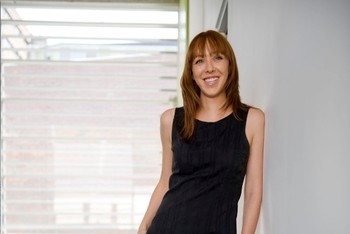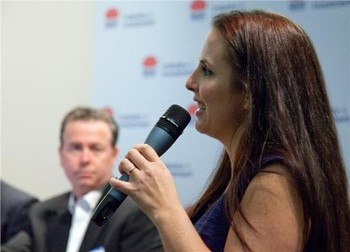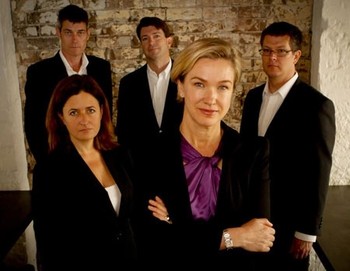10 female entrepreneurs breaking down the tech boy’s club – StartupSmart

 Our coverage last week of female representation – or lack of it – in Australia’s tech industry provoked a surge of comment within the sector.
Our coverage last week of female representation – or lack of it – in Australia’s tech industry provoked a surge of comment within the sector.
While female entrepreneurs came forward with tales of sexism, blue jokes and chronic lack of representation in the tech space, others argued that Australia’s online innovators were a meritocratic bunch, with societal problems, rather than any inherent “boy’s club”, to blame for the male skew of the sector.
Whatever your viewpoint, it’s clear that our analysis of the seven major tech incubators in Australia reveals that the collective female representation in leadership roles equals zero, highlighting a significant gender imbalance.
However, while women may be massively outnumbered, that’s not to say that pioneering females aren’t making a splash in the tech industry.
Indeed, some of Australia’s leading tech start-ups are headed by women. We’ve picked out 10 of the best and asked them for their words of wisdom on how the industry treats women.
1. Rebekah Campbell, founder, Posse

Campbell has managed to create a cutting edge business that spans not one, but two, traditionally male dominated industries – music and technology.
Posse, which allows bands to provide rewards to fans who promote their shows, has attracted Google Maps founder Lars Rasmussen as an advisor and is tipped for great things both in Australia and overseas.
Campbell says that a key problem in the tech industry is the lack of female mentors.
“It’s just a fact of life that men and women approach and respond to things differently,” she says.
“Sometimes advice purely from a male perspective doesn’t quite fit with how I would approach a situation or problem.”
“I’ve been lucky to find a couple of awesome female mentors in Geraldine McBride (ex-president SAP Asia Pac) and Rebekah Horne (MySpace) but it took quite awhile to find these mentors and for the first couple of years I found my journey to be lonely, which is partly due to being a woman.”
Despite this, Campbell says there are some upsides to being a woman, such as regular opportunities to speak at events and get media attention. She urges women to be confident in their vision.
“Just because you haven’t built a website before or don’t have a degree in computer engineering or UX design doesn’t mean that you don’t know exactly how your site should work and look,” she advises.
“Getting the product right is the hardest and most crucial objective of a tech start-up and the person with the vision and who gets the customers’ needs must drive this process.”
“This took me awhile to get because I was overwhelmed by the opinions of people who were more qualified than me and I wasn’t confident enough to speak up and say that design isn’t right or that user experience doesn’t make sense to me.”
“At the end of the day the business will succeed or fail on the quality of the product and how well it resonates with the target market. As a founder you’ve got to be willing to drive this process and take ultimate responsibility for the product.”
2. Michelle Deaker, founder, OneVentures

Deaker has worked in the IT industry for more than 10 years as a business owner and entrepreneur.
Her company, E Com Industries, became the leader in prepaid and electronic voucher technologies in Australia before being acquired by a UK company for $30 million.
For three years prior to establishing E Com, Deaker was the managing director of Sydney-based computer and web design firm Networks Beyond 2000.
Deaker also has more than 10 years of experience in research and development with Australian universities and the Commonwealth Scientific and Industrial Research Organisation.
In 2006, following the successful exit of E Com Industries, Deaker established venture capital firm OneVentures. According to Deaker, many female entrepreneurs often undersell themselves.
“It’s about putting themselves forward saying, ‘Yes I can do this and I can do a really good job’,” Deaker says.
3. Rachel Slattery, founder, SlatteryIT

Not only has Slattery carved out a successful IT business, she spearheads Tech23, the annual Sydney event that showcases the best up-and-coming tech businesses in Australia.
She is sanguine about the role of women in the tech industry.
“The rules and hierarchies that dominate other industries don’t necessarily apply in an industry as dynamic as the tech industry,” she says.
“(The) industry is the ‘new frontier’, so get ready to learn every day and be out of your comfort zone as things are constantly on the move.”
“It’s important to find people you can learn from and networks you can tap into when you need help and some fun!”
4. Dale McCarthy, founder, Foundry

While none of Australia’s leading tech incubators have a woman in a senior role, Dale McCarthy is looking to change that with Sydney-based Foundry.
Although her business is more an investor and co-founder of businesses, rather than an incubator as such, McCarthy is already on track to helping start-ups get ahead, unveiling her first investment earlier this week.
McCarthy is bullish about the prospects of women in tech, but admits that female leaders face certain challenges their male counterparts do not.
“I’ve never thought of my sex as a barrier or a challenge working in digital industries, frankly,” she says.
“Probably my biggest challenge was deciding to put my career on hold in order to have and raise two children. It was challenging watching others progress around me while I was a lowly ‘part-timer’.”
“But that was a life decision I gladly made and you have to accept the consequences of every decision you make, no matter what sex you are.”
Her advice for young female-led tech start-ups?
“Firstly, I’d say don’t think of it as ‘tech’ and don’t let what you don’t know about technology intimidate you,” she says.
“If you are an entrepreneur in this sector you are a smart business person who has decided to work in the economy of the future – the digital economy.”
“These days the technology required to build the platform of your businesses isn’t anywhere near as difficult or important as the smarts, determination and tenacity you will require to build your business smarter and more effectively than your competitors. “

